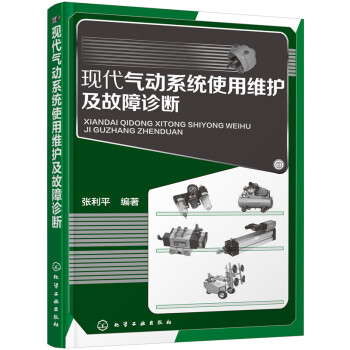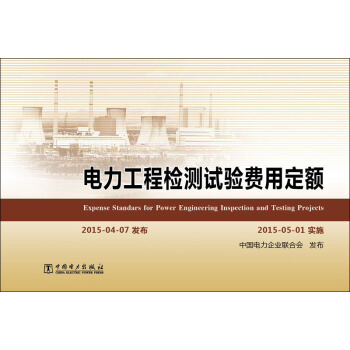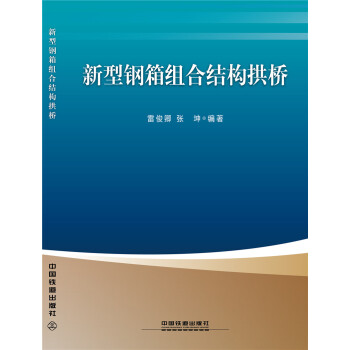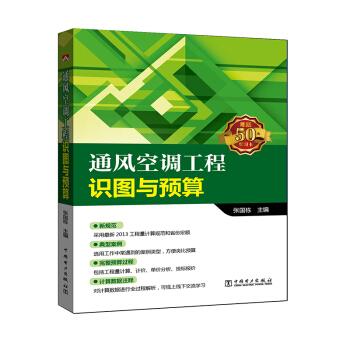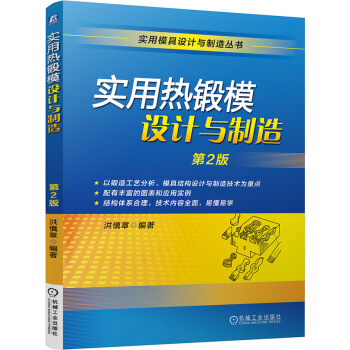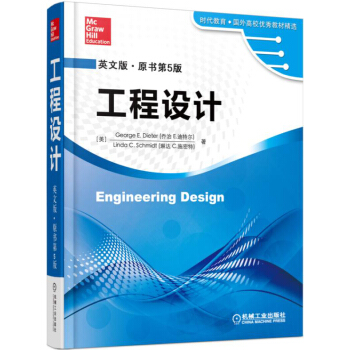

具体描述
内容简介
《工程设计 Engineering Design(英文版 原书第5版)》系统介绍了工程设计领域的相关知识,其主要内容不仅包括了类似书籍涵盖的产品开发过程、概念生成、实体设计、详细设计等知识,也包括了该书独有的面向可持续性与环境的设计、材料的选用、面向制造的设计,以及成本评估、决策学等知识。目录
序Preface to Fifth Edition/第5版前言 xiii
Chapter 1 Engineering Design/工程设计 1
1.1 Introduction/引言 1
1.2 Engineering Design Process/工程设计过程 3
1.3 Ways to Think about the Engineering Design Process/工程
设计过程的思路 6
1.4 Description of Design Process/设计过程描述 14
1.5 Considerations of a Good Design/优秀设计的考虑因素 17
1.6 Computer-Aided Engineering/计算机辅助工程 22
1.7 Designing to Codes and Standards/遵守规范与标准的设计 24
1.8 Design Review/设计评审 26
1.9 Societal Considerations in Engineering Design/工程设计
应考虑的社会因素 28
1.10 Summary/本章小结 32
New Terms and Concepts/新术语和概念 33
Bibliography/参考文献 33
Problems and Exercises/问题与练习 33
Chapter 2 Product Development Process/产品开发过程 36
2.1 Introduction/引言 36
2.2 Product Development Process/产品开发过程 36
2.3 Product and Process Cycles/产品与工艺周期 44
2.4 Organization for Design and Product Development/设计与产品
开发组织 48
2.5 Markets and Marketing/市场与营销 55
2.6 Technological Innovation/技术创新 61
2.7 Summary/本章小结 66
New Terms and Concepts/新术语和概念 67
Bibliography/参考文献 67
Problems and Exercises/问题与练习 67
Chapter 3 Problem Definition and Need Identification/问题定义和
需求识别 70
3.1 Introduction/引言 70
3.2 Identifying Customer Needs/识别客户需要 72
3.3 Customer Requirements/客户需求 80
3.4 Gathering Information on Existing Products/收集现有产品
信息 86
3.5 Establishing the Engineering Characteristics/建立工程特性 94
3.6 Quality Function Deployment/质量功能配置 99
3.7 Product Design Specification/产品设计说明书 111
3.8 Summary/本章小结 113
New Terms and Concepts/新术语和概念 115
Bibliography/参考文献 115
Problems and Exercises/问题与练习 116
Chapter 4 Team Behavior and Tools/团队行为和工具 118
4.1 Introduction/引言 118
4.2 What It Means to be an Effective Team Member/何谓有效团队
成员 119
4.3 Team Leadership Roles/团队的领导角色 120
4.4 Team Dynamics/团队动力学 121
4.5 Effective Team Meetings/有效的团队会议 123
4.6 Problem-Solving Tools/解决问题的工具 125
4.7 Time Management/时间管理 144
4.8 Planning and Scheduling/规划和进度安排 146
4.9 Summary/本章小结 154
New Terms and Concepts/新术语和概念 154
Bibliography/参考文献 155
Problems and Exercises/问题与练习 155
Chapter 5 Gathering Information/信息收集 158
5.1 The Information Challenge/信息的挑战 158
5.2 Types of Design Information/设计信息的分类 160
5.3 Sources of Design Information/设计信息源 161
5.4 Summary/本章小结 164
New Terms and Concepts/新术语和概念 164
Bibliography/参考文献 164
Problems and Exercises/问题与练习 164
Chapter 6 Concept Generation/概念生成 166
6.1 Introduction to Creative Thinking/创造性思维的介绍 167
6.2 Creativity and Problem Solving/创造性和问题求解 171
6.3 Creative Thinking Methods/创造性思维方法 177
6.4 Creative Methods for Design/设计的创造性方法 187
6.5 Functional Decomposition and Synthesis/功能分解与综合 191
6.6 Morphological Methods/形态学方法 201
6.7 TRIZ: The Theory of Inventive Problem Solving/TRIZ:发明
问题解决理论 204
6.8 Summary/本章小结 215
New Terms and Concepts/新术语和概念 216
Bibliography/参考文献 217
Problems and Exercises/问题与练习 217
Chapter 7 Decision Making and Concept Selection/决策确定和
概念选择 219
7.1 Introduction/引言 219
7.2 Decision Making/决策 220
7.3 Evaluation Processes/评价过程 232
7.4 Using Models in Evaluation/评价模型 237
7.5 Pugh Chart/Pugh表 254
7.6 Weighted Decision Matrix/加权决策矩阵 258
7.7 Analytic Hierarchy Process (AHP)/层次分析法 (AHP) 261
7.8 Summary/本章小结 269
New Terms and Concepts/新术语和概念 270
Bibliography/参考文献 270
Problems and Exercises/问题与练习 270
Chapter 8 Embodiment Design/实体设计 274
8.1 Introduction/引言 274
8.2 Product Architecture/产品架构 277
8.3 Steps in Developing Product Architecture/构建产品架构的
步骤 281
8.4 Configuration Design/配置设计 286
8.5 Best Practices for Configuration Design/配置设计的
最佳实践 293
8.6 Parametric Design/参数设计 303
8.7 Dimensions and Tolerances/尺寸公差 315
8.8 Industrial Design/工业设计 333
8.9 Human Factors Design/人因工程设计 336
8.10 Life-Cycle Design/全生命周期设计 343
8.11 Prototyping and Testing/原型和测试 344
8.12 Design for X (DFX)/面向X的设计(DFX) 354
8.13 Summary/本章小结 356
New Terms and Concepts/新术语和概念 357
Bibliography/参考文献 357
Problems and Exercises/问题与练习 358
Chapter 9 Detail Design/详细设计 361
9.1 Introduction/引言 361
9.2 Activities and Decisions in Detail Design/详细设计中的活动和
决策 362
9.3 Communicating Design and Manufacturing Information/设计和
制造信息的交流 366
9.4 Final Design Review/设计终审 377
9.5 Design and Business Activities Beyond Detail Design/详细设计
以外的设计和商务活动 378
9.6 Facilitating Design and Manufacturing with Computer-Based Methods/基于计算机方法的设计与创造 381
9.7 Summary/本章小结 383
New Terms and Concepts/新术语和概念 383
Bibliography/参考文献 384
Problems and Exercises/问题与练习 384
Chapter 10 Design for Sustainability and the Environment/面向
可持续性和环境的设计 386
10.1 The Environmental Movement/环境趋势 386
10.2 Sustainabilty/可持续性 391
10.3 Challenges of Sustainability for Business/可持续性对商业的
挑战 395
10.4 End-Of-Life Product Transformations/退役产品的处理 397
10.5 Role of Material Selection in Design for Environment/面向环境
设计中的材料选择原则 402
10.6 Tools to Aid Design for the Environment and Sustainability/面向
环境和可持性设计的辅助工具406
10.7 Summary/本章小结 410
New Terms and Concepts/新术语和概念 411
Bibliography/参考文献 411
Problems and Exercises/问题与练习 411
Chapter 11 Materials Selection/材料选用 412
11.1 Introduction/引言 412
11.2 Performance Requirements of Materials/材料的性能要求 415
11.3 The Materials Selection Process/选材过程 426
11.4 Summary/本章小结 430
New Terms and Concepts/新术语和概念 431
Bibliography/参考文献 432
Problems and Exercises/问题与练习 432
Chapter 12 Design for Manufacturing/面向制造的设计 433
12.1 Role of Manufacturing in Design/制造在设计中的角色 433
12.2 Manufacturing Functions/制造的功能 434
12.3 Classification of Manufacturing Processes/制造工艺分类 436
12.4 Manufacturing Process Selection/制造工艺的选择 443
12.5 Design for Manufacture (DFM)/面向制造的设计(DFM) 468
12.6 Design for Assembly (DFA)/面向装配的设计(DFA) 472
12.7 Role of Standardization in DFMA/标准化在面向制造和
装配设计中的作用 479
12.8 Mistake-Proofing/防错 484
12.9 Early Estimation of Manufacturing Cost/制造成本的
早期预估 488
12.10 Process Specific DFMA Guidelines/面向制造和装配设计的
工艺指南 492
12.11 Design for Machining/切削工艺设计 493
12.12 Summary/本章小结 498
New Terms and Concepts/新术语和概念 500
Bibliography/参考文献 500
Problems and Exercises/问题与练习 501
Chapter 13 Risk, Reliability, and Safety/风险、可靠性和安全性 503
13.1 Introduction/引言 503
13.2 Probabilistic Approach to Design/设计中的概念方法 509
13.3 Reliability Theory/可靠性理论 517
13.4 Design for Reliability/面向可靠的设计 532
13.5 Failure Mode and Effects Analysis (FMEA)/失效模式及影响
分析(FMEA) 537
13.6 Fault Tree Analysis/故障树分析 542
13.7 Defects and Failure Modes/缺陷和失效模式 545
13.8 Design for Safety/面向安全性的设计 547
13.9 Summary/本章小结 550
New Terms and Concepts/新术语和概念 551
Bibliography/参考文献 551
Problems and Exercises/问题与练习 552
Chapter 14 Quality, Robust Design, and Optimization/质量,鲁棒
设计与优化 555
14.1 The Concept of Total Quality/全面质量的概念 555
14.2 Quality Control and Assurance/质量控制与保障 558
14.3 Statistical Process Control/统计过程控制 562
14.4 Quality Improvement/质量改进 567
14.5 Process Capability/工艺能力 570
14.6 Taguchi Method/田口方法 575
14.7 Robust Design/鲁棒设计 581
14.8 Optimization Methods/优化方法 587
14.9 Design Optimization/优化设计 603
14.10 Summary/本章小结 604
New Terms and Concepts/新术语和概念 605
Bibliography/参考文献 605
Problems and Exercises/问题与练习 606
Chapter 15 Economic Decision Making/经济决策 609
15.1 Introduction/引言 609
15.2 Mathematics of Time Value of Money/货币时间价值的
数学运算 610
15.3 Cost Comparison/成本比较 617
15.4 Sensitivity and Break-Even Analysis/敏感性与
盈亏平衡分析 622
15.5 Uncertainty in Economic Analysis/经济性分析中的不确定性 624
15.6 Benefit-Cost Analysis/效益成本分析 625
15.7 Summary/本章小结 627
New Terms and Concepts/新术语和概念 629
Bibliography/参考文献 629
Problems and Exercises/问题与练习 629
Chapter 16 Cost Evaluation/成本评估 633
16.1 Introduction/引言 633
16.2 Categories of Costs/成本分类 634
16.3 The Cost of Ownership/拥有成本 637
16.4 Manufacturing Cost/制造成本 638
16.5 Overhead Cost/管理成本 639
16.6 Activity-Based Costing/作业成本分析法 641
16.7 Methods of Developing Cost Estimates/开发成本的
评估方法 644
16.8 Make-Buy Decision/自制和外协决策 649
16.9 Life Cycle Costing/生命周期成本法 650
16.10 Summary/本章结小结 654
New Terms and Concepts/新术语和概念 655
Bibliography/参考文献 655
Problems and Exercises/问题与练习 656
Appendices/附录661
前言/序言
用户评价
作为一名对科技发展充满好奇的科技爱好者,我常常思考那些改变世界的伟大发明背后,究竟蕴含着怎样的工程设计智慧。《工程设计 Engineering Design》(英文版 原书第5版)这本书,在我看来,就像是一本揭秘“如何创造未来”的说明书。我非常期待书中能够深入剖析一些经典工程案例,例如航空航天、生物技术、新能源等领域,从工程设计的角度去解读它们的突破和创新之处。我希望通过这些案例,能够理解在面对前所未有的挑战时,工程师们是如何运用严谨的科学原理和无穷的创造力来解决问题的。同时,我也对书中关于“伦理道德”和“社会影响”在工程设计中的考量非常感兴趣。随着科技的飞速发展,工程设计的影响力越来越大,如何确保设计是负责任的、符合社会伦理的,已经成为一个不可回避的问题。我希望这本书能够探讨这些深刻的哲学和伦理议题,引导读者思考工程设计所带来的深远意义。第五版的出版,让我相信这本书的内容是紧跟时代步伐的,它能够帮助我理解当下以及未来科技发展中,工程设计所扮演的关键角色。
评分最近我一直在为一个创新的产品项目寻找灵感和方法论,而《工程设计 Engineering Design》(英文版 原书第5版)这本书,在我看来,简直就是一座宝藏。我最想深入挖掘的是书中关于“创造性思维”和“问题解决”的章节。很多时候,我们面临的工程问题并不是简单地按照既定公式就能解决的,需要的是跳出思维定势,寻找全新的解决方案。我希望这本书能提供一些激发创造力的技巧,比如如何通过联想、类比、逆向思维等方式来生成新颖的设计概念。同时,我也非常关注书中在“风险评估”和“迭代优化”方面的论述。一个好的设计并非一蹴而就,而是需要在不断试错和改进中完善的。我希望书中能够提供清晰的风险识别和评估方法,以及有效的迭代优化策略,帮助我更好地管理项目过程中的不确定性,并逐步将想法打磨成更成熟的产品。这本书的第五版,意味着它已经经历了多次的修订和完善,我相信其中包含了许多成功的案例和宝贵的经验教训,这些对于我这样一个正在摸索中的创业者来说,无疑是极其宝贵的财富。
评分拿到《工程设计 Engineering Design》(英文版 原书第5版)这本书,我的内心是充满期待的,因为我一直对工程设计的严谨逻辑和创造性过程着迷。翻开书页,首先映入眼帘的是其厚重而扎实的排版,预示着内容的深度和广度。我并不是一个科班出身的工程师,更多的是出于对技术和如何将想法转化为现实的兴趣,所以这次阅读之旅更多的是一种探索和学习。我希望这本书能够为我揭开工程设计神秘的面纱,让我理解一个产品的诞生需要经历怎样的思考、分析、迭代和优化。从产品的概念构思到最终的实现,每一个环节都凝聚着智慧和汗水,而这本书,我期望它能够系统地梳理出这些关键路径,并用清晰易懂的语言进行阐释。我特别关注书中关于“需求分析”和“概念生成”的部分,在我看来,这是整个设计流程的基石,如果在一开始就对需求理解不透彻,或者概念不够创新,那么后续的努力很可能事倍功半。我希望这本书能提供一些切实可行的方法论,帮助我在面对复杂问题时,能够更有效地提炼核心需求,并激发多元化的解决方案。同时,我也很好奇书中会如何探讨“权衡取舍”这一工程设计中绕不开的议题,比如在成本、性能、可靠性、美观度之间做出最优选择,这无疑是考验设计者功力的关键所在。这本书的第五版,意味着它已经经过了市场的检验和时间的沉淀,相信其中蕴含的知识和经验是经过反复打磨的,这一点让我对它的价值深信不疑。我期待着它能带我走进一个充满挑战与机遇的工程设计世界。
评分我是一名对新材料和新工艺应用充满热情的工程师,我认为工程设计的核心之一就是拥抱创新,并将最新的技术成果转化为实际的产品。《工程设计 Engineering Design》(英文版 原书第5版)这本书,对我来说,就像是通往前沿科技的一扇窗户。我非常期待书中能够详细介绍一些新兴材料(如纳米材料、生物可降解材料)和先进制造技术(如增材制造、智能制造)在工程设计中的应用前景和挑战。我希望能够理解这些新技术如何改变传统的设计思维,并为设计者提供新的可能性。同时,我也对书中关于“仿真技术”和“虚拟原型”的讨论非常感兴趣。在物理原型制作成本高昂且耗时的情况下,如何利用计算机仿真来预测产品性能、优化设计方案,已成为现代工程设计不可或缺的工具。我希望这本书能够提供一些关于仿真工具的选择、模型建立以及结果分析的实用指导。这本书的第五版,让我对其内容的前沿性和权威性有了充分的信心,相信它能够激发我更多关于材料和工艺创新的思考。
评分作为一名长期关注工程领域发展的爱好者,我一直认为《工程设计 Engineering Design》(英文版 原书第5版)这样的专业书籍,是连接理论与实践、理解行业前沿的重要桥梁。我对书中关于“项目管理”在工程设计中的集成化处理非常感兴趣。我理解,一个成功的工程设计项目,不仅仅是技术上的卓越,更需要高效的项目管理来确保进度、成本和质量的控制。我希望书中能够详细阐述,如何将工程设计的各个阶段(从概念到验证)与项目管理的各个过程(如启动、规划、执行、监控、收尾)有机地结合起来,形成一套行之有效的管理框架。我特别期待书中能够提供一些关于风险管理、资源分配和沟通协调的实用工具和技巧,帮助我理解在实际项目中如何应对复杂性和不确定性。此外,我也很好奇书中是否会涉及“创新生态系统”和“开放式创新”等更宏观的设计理念,探讨如何在更广泛的合作网络中进行工程设计。这本书的第五版,在我看来,是其内容经过多年沉淀和优化的有力证明,我相信它能够为我提供关于工程设计和项目管理相结合的深刻见解,并激发我更多关于未来发展模式的思考。
评分我对《工程设计 Engineering Design》(英文版 原书第5版)的兴趣,源于我对“精益生产”和“效率优化”的持续追求。在我看来,工程设计不仅仅是创造新事物,更是如何用最有效、最经济的方式实现设计目标。我希望这本书能够深入探讨“设计 for Manufacturing”(DFM)和“设计 for Assembly”(DFA)的理念,以及如何通过优化设计来降低生产成本、提高生产效率。我特别期待书中能够提供一些量化的评估方法和案例,让我能够理解如何通过设计决策来直接影响产品的成本和上市时间。另外,我也非常关注书中关于“知识管理”和“设计复用”的章节。在复杂的工程项目中,如何有效地积累、传承和利用设计经验,避免重复劳动,是提高整体设计效率的关键。我希望这本书能够提供一些关于知识库建设、设计标准化和模块化设计的建议,帮助组织更好地管理其设计资产。第五版的出现,意味着这本书的内容已经经过了长期的积累和反馈,我相信它能够为我提供一套成熟且实用的工程设计体系。
评分我是一名产品经理,虽然我不是直接的设计者,但对产品设计过程的理解和把握,对于我推动产品迭代和创新至关重要。《工程设计 Engineering Design》(英文版 原书第5版)这本书,为我提供了一个绝佳的机会,让我能够从更宏观、更专业的角度来审视工程设计。我特别想深入理解书中关于“用户体验设计”和“人机工程学”的结合。在我看来,一个优秀的产品,不仅要功能强大,更要易于使用、符合人体工学,并能为用户带来愉悦的体验。我希望这本书能够详细阐述如何将用户需求和行为模式融入设计决策,以及如何运用人机工程学原理来优化产品的交互和界面。此外,我也非常关注书中关于“跨学科协作”的讨论。现代工程设计往往需要不同专业背景的人员共同参与,如何有效地沟通、协调和整合各方意见,确保项目顺利进行,是产品经理经常面临的挑战。我期待这本书能提供一些关于团队协作和沟通的最佳实践,帮助我更好地管理设计团队,并推动产品目标的达成。这本书的厚重感和第五版的出版,让我对其内容的深度和广度充满信心,相信它能为我带来许多启发。
评分我是一名致力于可持续发展和绿色工程的实践者,对于《工程设计 Engineering Design》(英文版 原书第5版)这本书,我期待它能够为我提供更系统、更深入的绿色设计理念和方法。我特别想深入研究书中关于“生命周期评估”(LCA)和“循环经济设计”的章节。如何从产品的整个生命周期(从原材料获取到最终废弃)来评估其环境影响,并在此基础上设计出更可持续的产品,是我一直关注的焦点。我希望书中能够提供详细的LCA方法论和实践指南,以及如何将循环经济的原则融入设计过程的案例。此外,我也非常关注书中关于“法规标准”和“合规性设计”的讨论。随着全球对环保要求的不断提高,各种法规和标准也日益完善。我希望这本书能够帮助我了解不同地区和行业在环保设计方面的要求,并提供相应的合规性设计策略。第五版的出现,让我相信这本书的内容是与时俱进的,它能够帮助我更好地理解和实践绿色工程设计,为构建可持续的未来贡献力量。
评分我是一名在校的工程专业学生,对于《工程设计 Engineering Design》(英文版 原书第5版)这本书,我的期望是它能够成为我学习路上的重要指引,帮助我建立起扎实的工程设计理论基础,并为我未来的职业生涯打下坚实的基础。尤其令我感兴趣的是书中关于“设计方法学”的介绍,例如TRIZ理论、QFD(质量功能展开)等,这些都是我在课堂上接触过但尚未完全掌握的方法。我希望通过阅读这本书,能够更深入地理解这些方法的精髓,并学会如何在实际的设计项目中灵活运用它们。此外,书中关于“原型制作”和“测试验证”的章节也引起了我的高度关注。在我看来,理论知识的掌握固然重要,但如何将理论转化为实际可行的原型,并通过严谨的测试来验证设计的合理性,是衡量一个工程师能力的重要标准。我希望书中能够提供详细的步骤和实用的技巧,指导我如何有效地进行原型制作和测试,从而避免在设计过程中走弯路。作为一本英文原版书籍,它能让我直接接触到国际前沿的工程设计思想和语言表达方式,这对于提升我的专业素养和语言能力都非常有益。我坚信,通过对这本书的深入研读,我将能够更自信地迎接未来的工程设计挑战。
评分作为一名在工程领域摸爬滚打了多年的从业者,我一直深信,理论知识的更新和实践经验的积累同样重要,尤其是在工程设计这个日新月异的领域。《工程设计 Engineering Design》(英文版 原书第5版)的出现,对我来说,无疑是为我补充理论知识、拓宽视野的绝佳机会。我特别想深入研究书中关于“系统工程”和“生命周期设计”的部分。现代工程项目往往涉及多个子系统,如何将它们有机地整合,确保整个系统的协同工作,这是我一直在思考和实践的问题。这本书能否提供更系统化的框架和工具,来指导我进行复杂的系统设计,是我最期待的部分。另外,从产品的全生命周期角度来考虑设计,例如可持续性、可制造性、可维护性以及最终的报废处理,这些都对当前强调绿色环保和循环经济的时代背景下至关重要。我希望书中能提供一些前沿的设计理念和案例,展示如何在设计的初始阶段就充分考虑这些因素,从而实现更具社会责任感和经济效益的设计。这本书的第五版,让我有理由相信它已经融入了最新的技术发展和行业趋势,比如人工智能在设计中的应用、数字化制造对设计过程的影响等等。我迫不及待地想看看,这些新的元素是如何被整合进传统的工程设计框架中的,它们又将如何改变我们未来的设计方式。
相关图书
本站所有内容均为互联网搜索引擎提供的公开搜索信息,本站不存储任何数据与内容,任何内容与数据均与本站无关,如有需要请联系相关搜索引擎包括但不限于百度,google,bing,sogou 等,本站所有链接都为正版商品购买链接。
© 2026 windowsfront.com All Rights Reserved. 静流书站 版权所有

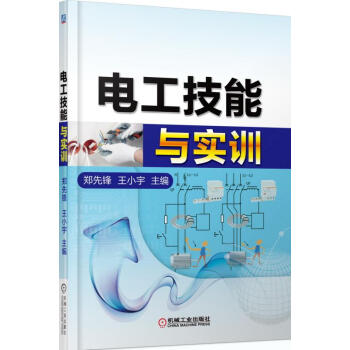
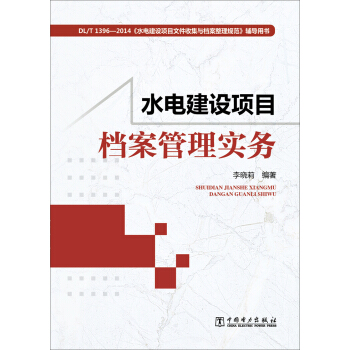
![飞行性能力学基础 [Flight Mechanics Performance Basis] pdf epub mobi 电子书 下载](https://pic.windowsfront.com/11786626/56220408N02bc35d4.jpg)


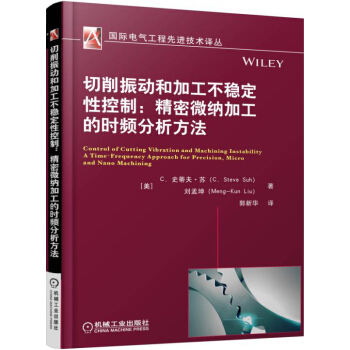

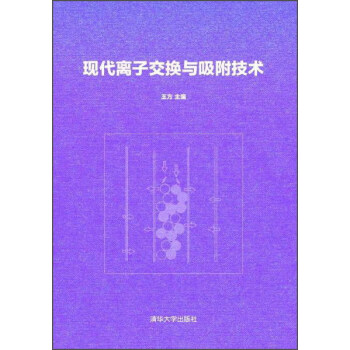


![国防科技著作精品译丛 深空飞行器:行星际飞行概览 [Deep Space Craft:An Overview of Interplanetary Flight] pdf epub mobi 电子书 下载](https://pic.windowsfront.com/11839602/568a4372N82010573.jpg)

